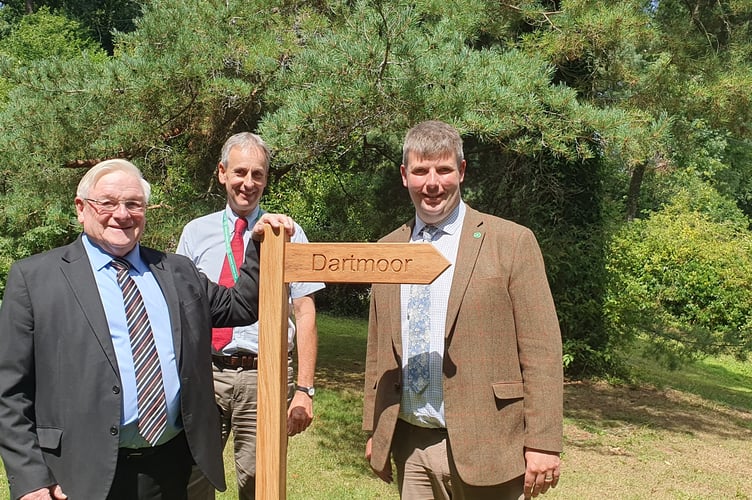The search is on for a new leader to guide Dartmoor National Park through the next stage of its ‘challenging’ journey.
Dartmoor National Park Authority (DNPA) has begun the process of finding a successor to chief executive Kevin Bishop, who recently announced he will be stepping down after 18 years in what he described as his “dream job”.
Members have agreed to spend £30,000 on an executive recruitment firm to begin the search.
Authority chairman William Dracup, a moorland farmer, said Dr Bishop had shown “tremendous leadership” since taking up the post in 2007.
Philip Sanders, who served on the authority for 20 years until May’s county council elections, said Dr Bishop’s contributions had been “amazing”. Mr Sanders was presented with an engraved Dartmoor signpost in recognition of his service.
He warned that the park faced fresh challenges, particularly around government support.
“The money is a joke as far as central government is concerned,” he said. “I get the sense that they don’t want farmers and farming, and they don’t particularly want national parks either.
“But Dartmoor will continue, whether this authority changes shape or not. Dartmoor has been there longer than any of us can imagine, and it will be there longer than any of us can imagine.”
The meeting also addressed recent criticism in the national press describing Dartmoor as “a desert”.
Writing in the Guardian, campaigner George Monbiot said purple moor-grass – Molinia – was taking over Britain’s national parks, calling central Dartmoor a “Molinia desert”.
Nature advocate Tony Whitehead added: “It’s just desperate – the place is bleached, it’s a dead zone and I know how rich it could be.”
DNPA member and former TV journalist Guy Pannell rejected the claims.
“I’m disappointed that there has been national publicity about the state of Dartmoor. I think calling it a desert is far from the case,” he said.
Organic farmer and member Mark Owen welcomed the authority’s annual review, but added: “It’s not all good. There are still issues with public behaviour and funding cuts.”





Comments
This article has no comments yet. Be the first to leave a comment.